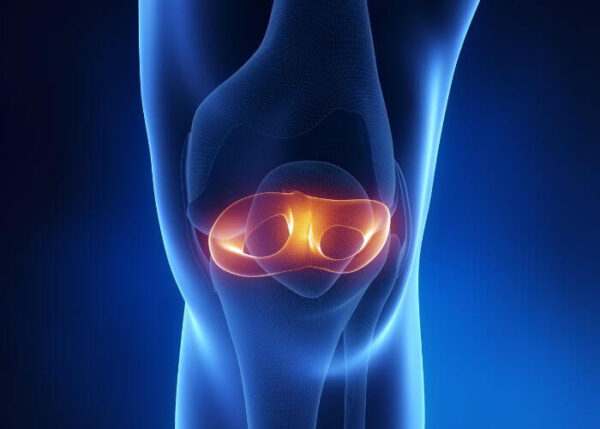Can children and adolescents tear their meniscus?
Meniscus tears in the pediatric population was, at one time, a rare diagnosis. However, with children entering competitive sports at an earlier age, adolescent athletes are more now as prone to meniscus injury as older teens and adults. Meniscus tears impede the function of the knee and can be minor or severe, depending on the damage sustained.

What is a meniscal injury in pediatrics?
Meniscal injuries in children are very similar to meniscal injuries in adults. The two c-shaped discs of cartilage, which act as shock absorbers in the knee and help keep the knee stable, become torn, injured or damaged. This can happen when participating in sports or in activities that require quick twisting, jumping or sudden stops and turns. Dr. Armando Vidal, pediatric orthopedic sports medicine specialist treats children, youth and teens who have torn their meniscus. Parents in Vail, Aspen and the surrounding Denver, Colorado communities rely on his expertise and extensive training to help their children return to sports and play.
How does a meniscal injury happen in children?
In adults, a meniscal injury can occur from wear and tear of the joint or from a sports injury. For children, a meniscus injury is most often caused by trauma or a sports-related injury. Sports that children participate which could cause a meniscal injury are:
- Football, hockey or other contact sports
- Basketball
- Gymnastics
- Soccer
- Running where the individual may plant their foot and turn
Children can also have a unique type of meniscus problem called a discoid meniscus. This abnormally shaped meniscus can be a congenital defect which affects the lateral (outside) part of the knee. The shape of a discoid meniscus makes it more susceptible to tearing and if torn, often require surgery.
What are the symptoms of a meniscal injury in kids?
Some children, youth and teens with meniscal injuries are able to walk and put weight on the affected knee. However, continued sports play can cause inflammation and pain in the knee. Associated symptoms of a meniscal injury are:
- Swelling in the knee
- A popping sound at the time of injury
- Tenderness around the joint line
- Inability to completely straighten the knee
- Locking knee joint (the knee “gets stuck” in one position)
- Increasing pain with activity
- Difficulty with stairs
- Difficulty standing up without assistance
How are meniscal injuries diagnosed in children, youth and teens?
Dr. Vidal will perform a thorough physical examination of the knee, checking for areas of tenderness and range of motion. X-rays may help to eliminate the suspicion other knee injuries and an MRI scan will help him confirm the diagnosis of a meniscal injury and to determine if other soft tissues are involved.
How are meniscal injuries in pediatrics treated?
The type of treatment prescribed depends on the type of meniscal injury. Children have the advantage of having a better blood supply to their meniscus than adults. This blood supply can heal certain meniscus tears without the need for surgical intervention. Non-surgical treatment may include:
- Rest, ice, elevation and a knee brace to protect and immobilize the joint
- Medication, such as non-steroidal anti-inflammatory drugs (NSAIDs)
- Crutches may be prescribed to help the patient move without pain
- Physical therapy to strengthen the muscles supporting the knee
If the meniscus tear is too serious and cannot heal on its own, surgery may be required. Surgical options for meniscus repair may include:
- Debridement: trim the ragged edges of the torn meniscus
- Meniscus repair
- Meniscus transplant/replacement
- Biologic treatment
Meniscal Preservation in Children is Critical
Meniscal preservation in children is critical and choosing a provider who understands the importance of meniscal preservation and is skilled in a variety of techniques to repair the meniscus is key!! Many providers choose meniscal debridement or trimming as a first line treatment because of its simplicity and quick recovery. However, this can lead to abnormal knee biomechanics and loading and ultimately arthritis. Dr. Vidal and his team are experts at meniscal repair and reconstruction.
How long before my child can play sports after a meniscal injury?
Children, youth and teens in Vail, Aspen and the surrounding Denver, Colorado communities should understand that a strict adherence to Dr. Vidal’s post-operative protocol will give them the best chance at a full recovery. Dr. Vidal cautions that successful recovery is a marathon, not a race. In general, patients can expect strengthening exercises and physical therapy, guided by Dr. Vidal’s team. Pediatric patients can expect a full recovery from a meniscal injury surgery and may return to sports activities typically in about 3-4 months.
Pediatric Meniscus Specialist
Does your child participate in sports involving sudden directional changes? If so, they may be at an increased risk of experiencing a meniscus injury. Mensical injuries in children can cause pain, popping, locking of the knee, and difficulty walking or climbing stairs. These injuries must be evaluated and treated by an expert, such as pediatric knee specialist, Doctor Armando Vidal. Dr. Vidal provides diagnosis as well as specialized treatment plans for children in Vail, Aspen, and the surrounding Denver, Colorado communities who have experienced a possible meniscus injury. Contact Dr. Vidal’s team today!

Locations
180 S Frontage Rd W
Vail, CO 81657
226 Lusher Court
Ste 101
Frisco, CO 80443
322 Beard Creek Road
Edwards, CO 81632


